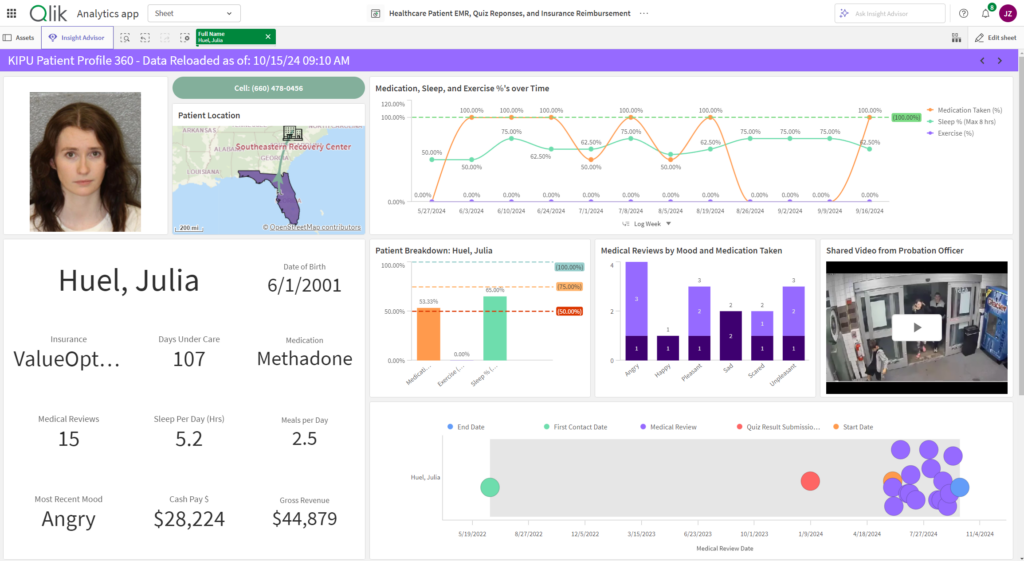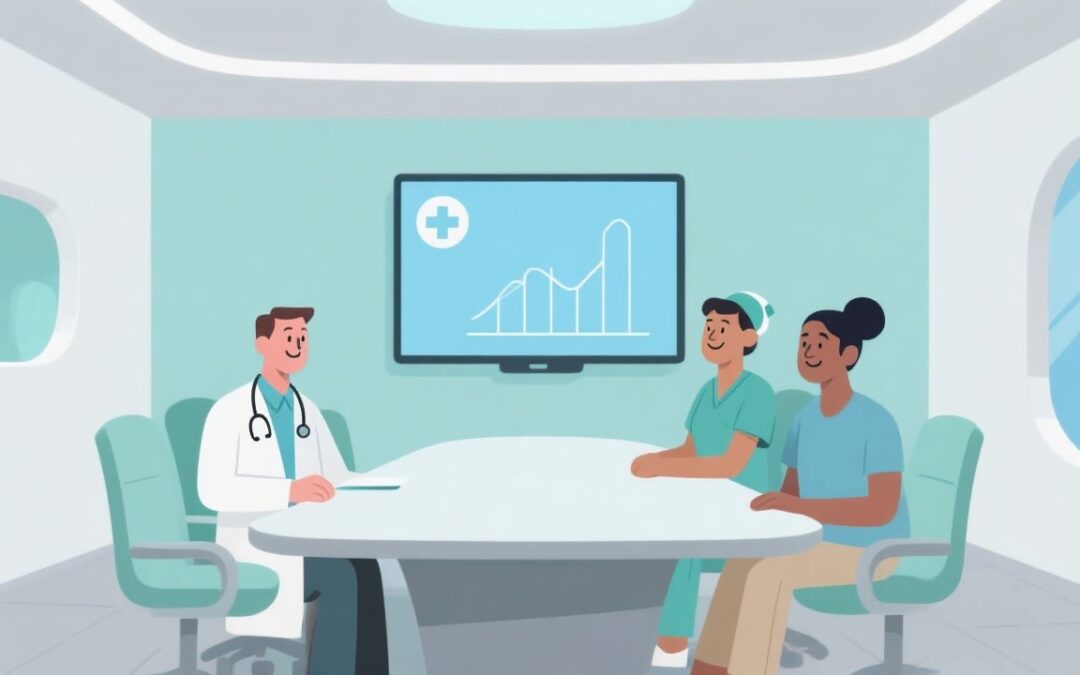How Data Analytics Improves Patient Outcomes
In today’s healthcare world, data is transforming the way providers deliver care. At Arc Analytics, we see every day how smart use of healthcare analytics leads to better patient outcomes, more efficient operations, and sharper clinical decisions. With the right tools and expertise, healthcare organizations can turn raw data into actionable insights that truly make a difference.
What Is Healthcare Data Analytics?
Healthcare data analytics means using clinical, financial, and operational data to improve care and efficiency. With the rise of electronic health records (EHRs), medical imaging, claims, and patient surveys, healthcare organizations generate more data than ever. When analyzed well, this data reveals patterns that help providers make better decisions and improve patient care. Modern analytics platforms, like Qlik Answers, make it easier for teams to ask complex questions and get clear, actionable answers from their data.
Learn more about our healthcare analytics services.
Types of Analytics in Healthcare
| Type | What It Does | Qlik Solution |
| Descriptive | Looks at past data to understand what happened | Qlik Answers |
| Diagnostic | Explains why certain outcomes occurred | Qlik Answers |
| Predictive | Forecasts future outcomes based on trends | Qlik Predict |
| Prescriptive | Recommends actions to optimize results | Qlik Automate |
Healthcare analytics platforms like Qlik make it possible to move seamlessly from understanding what happened, to why it happened, to what will happen next—and what you should do about it.
How Data Analytics Transforms Patient Care
Early Disease Detection & Risk Prediction
Analytics can spot patients at risk for chronic conditions—like diabetes or heart disease—before symptoms appear. Predictive models, powered by tools such as Qlik Predict, flag high-risk individuals, so providers can act early and prevent complications. This proactive approach helps healthcare teams shift from reactive care to prevention, improving long-term outcomes and reducing costs.
Personalized Treatment Planning
Every patient is unique. By analyzing outcomes from similar cases, providers can tailor treatments to each person’s needs, improving results and reducing side effects. With Qlik Answers, clinicians can quickly compare patient histories and treatment responses, making it easier to design care plans that are truly personalized. This data-driven approach ensures that each patient receives the most effective therapies based on real-world evidence.
Reducing Hospital Readmissions
Unplanned readmissions are costly and often preventable. Analytics helps identify patients likely to return, so care teams can offer extra support, better discharge planning, and follow-up care. Qlik Automate can streamline these processes by triggering automated alerts and workflows for at-risk patients, ensuring that no one falls through the cracks and that interventions happen at the right time.
Case Study: Recovery Center Patient Lifecycle Demo
We recently built a demo app that shows the power of integrated healthcare analytics. This tool connects data from a recovery center—Google Analytics, patient surveys, and clinical records—to map the entire patient journey.
Tracking the Patient Journey
From first contact to discharge, our demo visualizes each step, helping administrators spot bottlenecks and improve care delivery. By integrating multiple data sources, the application provides a 360-degree view of each patient’s experience, making it easier to identify where improvements can be made.
Real-Time Alerts for High-Risk Patients
Using Qlik’s alerting and GeoAnalytics, the app sends real-time notifications when a patient is at risk, even mapping emergency contacts nearby for rapid support. Qlik Automate ensures these alerts are delivered instantly to the right care team members, so action can be taken without delay.
Strengthening Support Networks
By connecting patients with their support networks, facilities can intervene quickly and improve long-term outcomes. The demo leverages Qlik’s advanced mapping and automation features to ensure that support is always within reach, especially during critical moments in a patient’s recovery.

See how our analytics solutions work in action.
Implementing Data Analytics in Healthcare
Building the Right Infrastructure
A strong analytics program needs secure storage, real-time processing, and tools to connect different systems. Qlik’s cloud-based solutions make it easy to scale your analytics infrastructure as your needs grow, while maintaining security and compliance. Explore our data engineering services.
Scalable Governance
We use a scalable governance approach, so your data quality, security, and compliance grow with your analytics capabilities. Qlik’s governance features help ensure that sensitive health data is protected and that analytics remain trustworthy as your organization evolves.
Overcoming Challenges
Data quality, legacy systems, and privacy are real hurdles. Our team helps you plan, integrate, and train for success, leveraging Qlik’s integration and automation tools to simplify even the most complex environments.
The Future: AI & Advanced Analytics
The next wave in healthcare analytics is AI and machine learning—tools that find complex patterns and predict outcomes with new accuracy. With Qlik Predict and open-source platforms, we help organizations prepare for this future, implementing scalable solutions that keep you at the forefront of healthcare innovation.
Why Arc Analytics?
Every healthcare organization is different. We combine technical skill with healthcare know-how to deliver custom analytics that fit your needs and drive real improvements in patient care. Our team works closely with yours to ensure that Qlik’s powerful features—like Qlik Answers, Qlik Predict, and Qlik Automate—are fully leveraged for your unique challenges.
Ready to see what data can do for your patients?
Contact Arc Analytics today to learn how our solutions can help you improve outcomes, boost efficiency, and deliver more personalized care.

